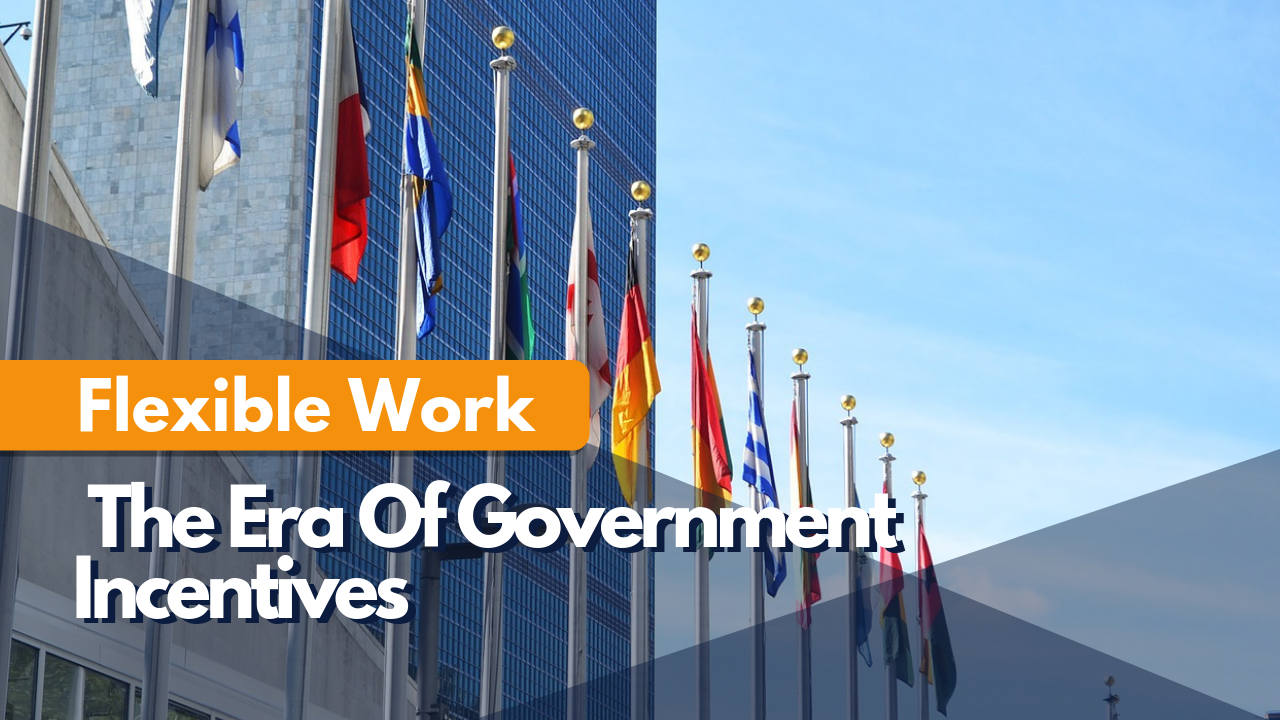- Over the last year, there has been a greater push for flexible work with a number of new government supported programs, task forces, and laws being proposed.
- Among them, a new tax break has been proposed in Massachusetts for organizations that allow their employees to telecommute, to reduce congestion.
- The flexible workspace industry has a significant opportunity to provide more productive workspaces for flexible workers and their many different needs.
For many of us, flexible working isn’t a new idea.
We have been talking about telecommuting and telework for years.
However, with new technology and internet being generally widespread, flexible work has become much easier, affordable, and productive for many employees and employers.
I have even seen quite a large number of these people as members in our coworking and shared workspaces.
Over the last year, there has been an even greater push for flexible work with a number of new government supported programs, task forces, and laws being proposed.
So why now?
There are many different reasons for a government organization to incentivize or support flexible work such as:
- Improving workplace equality
- Increasing the productivity of its citizens
- Reducing pollution and traffic on the roads
- Improving general health and reducing healthcare expenses
And many more.
Support in Massachusetts, Singapore, the UK, and Finland
Most recently, on July 25, 2019, Gov. Charlie Baker of Massachusetts, proposed a new tax break of $2,000 per employee for organizations that allow their employees to telecommute. Driven by a push to take cars off the road and reduce congestion on the roads, this is the first incentive program like this that I have seen in the United States.
In Singapore, the Ministry of Manpower has implemented a flexible work agreement (FWA) incentive. “Companies can apply for grants and incentives” of $2,000 per local employee per year “to implement flexible work arrangements (FWAs) such as flexi-load, flexi-place and flexi-time.” The company must also adopt a set of standards called the Tripartite Standard on FWA “as part of the Work-Life Grant to better attract and retain talent and improve the productivity of their workforce.”
Last year, the Flexible Working Task Force was created in the UK as a partnership of “cross government departments, business groups, trade unions and charities”. It was primarily established “in response to the Prime Minister’s challenge to business to improve workplace equality by advertising all jobs as flexible from day one.“
Over the past year, this task force has released many new resources that can be used by organizations to better implement flexible work, address change management issues, improve management buy in, and much more, all with the goal of “unlocking the full benefits of flexible and agile working.”
In Finland, they are perhaps allowing flexible working to the most extreme level. Since 1996, the Working Hours Act gave employees the right to change the typical working hours in a day by starting or finishing up to 3 hours earlier or later.
In 2020, a new Working Hours Act is being put into effect. “It will give the majority of full-time employees the right to decide when and where they work for at least half of their working hours,” which is a dramatic leap forward.
How is the coworking and shared workspace industry being impacted?
Our industry has a significant opportunity to provide more productive workspaces for flexible workers and their many different needs.
A flexible worker might need a space once a week, three times a month, a few hours each month, or the ability to work in a few different locations.
Some workers might just be looking for a space that provides a similar experience to a coffee shop when they would like to work away from their home office. There is even some legislature around home offices bringing liability to employers which could further drive demand toward alternative shared and flexible workspaces near to home.
How are your spaces, events, community activities, and membership plans attracting and supporting flexible workers? Do you have a plan ready for these new members?
I am definitely looking forward to continuing working with organizations driving this growth and developing new tools to help this transition. Do you know of any other programs or incentives being put into place by governments to drive more flexible working? Tell me about it.



 Dr. Gleb Tsipursky – The Office Whisperer
Dr. Gleb Tsipursky – The Office Whisperer Nirit Cohen – WorkFutures
Nirit Cohen – WorkFutures Angela Howard – Culture Expert
Angela Howard – Culture Expert Drew Jones – Design & Innovation
Drew Jones – Design & Innovation Jonathan Price – CRE & Flex Expert
Jonathan Price – CRE & Flex Expert












